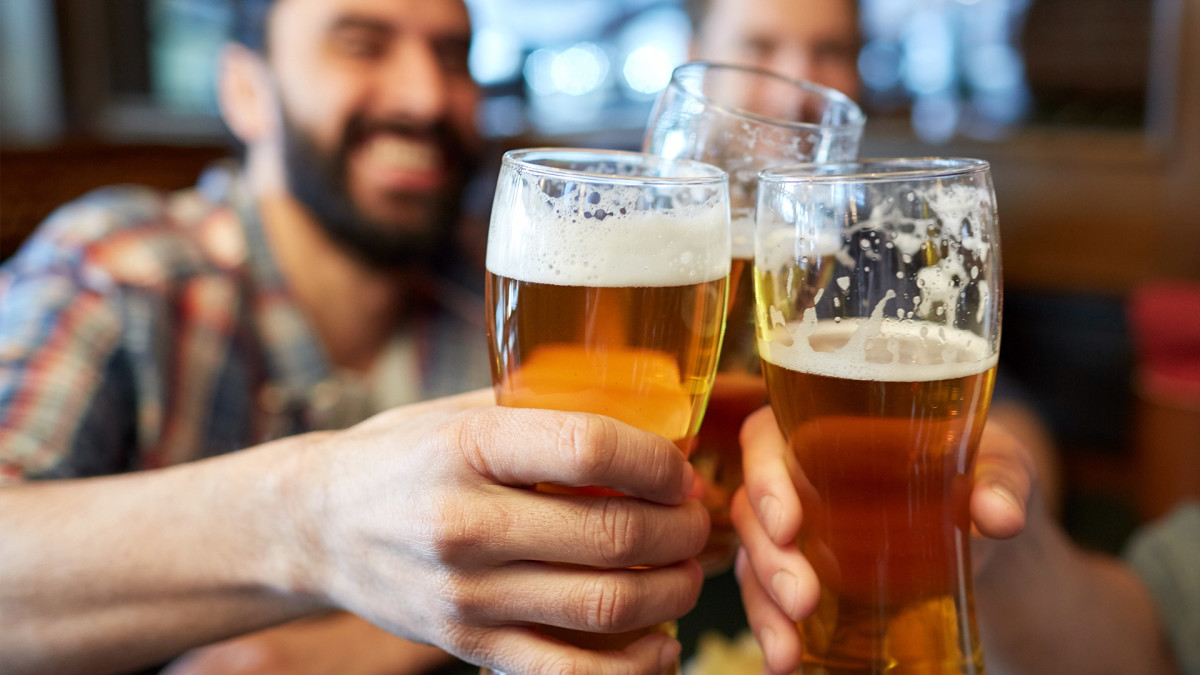Beloved brewery moves from Chapter 11 bankruptcy to liquidation
Many businesses come and go without making much of a mark. That's especially true in the restaurant and bar space where people often follow a dream even when that dream has no ties to their actual abilities.
Being a good cook whose friends love their barbecue is not the same as having the skills to open a restaurant. That's why so many establishments open with a flourish, only to disappear within a year or two, often having a big opening, followed, by a slow, painful death.
Related: Tesla electric vehicle rival files bankruptcy, begins liquidation
It's a simple reality that you can see play out on shows like "Bar Rescue," and Gordon Ramsay's "Kitchen Nightmares," where bar expert Jon Taffer and celebrity chef Ramsay, on their respective programs, show people what they're doing wrong. In many cases, people buy or open bars and restaurants because they love the idea of being their own bosses and following their passion.
They don't, however, take the basic steps to understand the business side of their passion project. That can lead to over or undercharging, rampant theft/comped drinks from under-supervised staff, and huge financial losses.
Since the Covid-19 pandemic, those shows, and the wider business world, have seen a new kind of failure. Restaurants, bars, and, especially, regional breweries have gone bankrupt not because they're poorly run, but because they took on debt during the pandemic.
That creates a more difficult situation where the underlying business may return to profitability but the owner can't make enough to service the debt.
In some cases, a Chapter 11 filing can see loan maturities get extended and vendors make deals to keep their partners open.
In other cases, however, those negotiations fail, and a Chapter 11 bankruptcy turns into a Chapter 7 liquidation.
 Local brewers have been closing at an alarming rate.
Local brewers have been closing at an alarming rate. Image source&colon Shutterstock
Flying Fish was a success story
While most people who pursue a passion like opening a brewery fail quickly, Gene Muller followed a very different path. He opened what would eventually become a popular regional brewery as a "virtual" brewery in 1996. Muller named this fledgling effort, "Flying Fish," after the constellation in the Southern Hemisphere that represents “exploration and adventure.”
"By allowing drinkers to engage with him directly, he soon garnered attention and accolades that led to the funding that made Gene’s dream a reality, and the first production brewery was built in Cherry Hill, NJ," the brewery shares on its website.
That original brewery grew into a larger facility, a tasting room, and regional distribution throughout New Jersey, Pennsylvania, Delaware, and Maryland. The company even has had a national deal with Total Wine to bring its beer outside that area, and Flying Fish has a popular tasting room.
The company, however, struggled to pay its bills as the country emerged from the pandemic. It had a failed merger with Cape May Brewing and filed for Chapter 11 bankruptcy protection in May 2023.
At the time, the company, which had been acquired by Elk Lake Capital, hoped to be able to rework its obligations and continue operating. That has not happened, and, so, the "Beerpocalypse," which has been forcing regional and local breweries into bankruptcy, however, has claimed another victim.
Flying Fish moves into liquidation
While it operated its Tasting Room over Super Bowl weekend, Flying Fish's remaining assets will be auctioned off on Feb. 13. It's possible that a buyer steps up that intends to operate the brand as it is, but the company took to its Facebook page to share what happens next calling its future "very uncertain."
All we know at this time is that there is a public auction scheduled for this coming Tuesday, but we have no way of predicting what will come of that auction. Best case scenario for us is that someone buys us with the intent to keep the Flying Fish brand alive and we, the staff at the brewery, can all retain our employment. Unfortunately, it isn’t up to us at the brewery to decide what happens. We have to wait to hear what comes of the auction next week.
A new owner could continue to operate the brand. It's also possible that another brewery acquires equipment or even some of Flying Fish's beer brands. There's no guarantee that the entire group of assets will be sold to one buyer. It's very possible that it will be sold for parts and that the long-standing brand has brewed its beers for the final time.
Muller sold his final shares in Flying Fish in 2018 after selling his controlling interest to Elk Lake in 2018.
Sign up for our e-News Alerts
SUBMIT FEEDBACK
Click Below to: